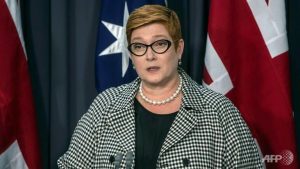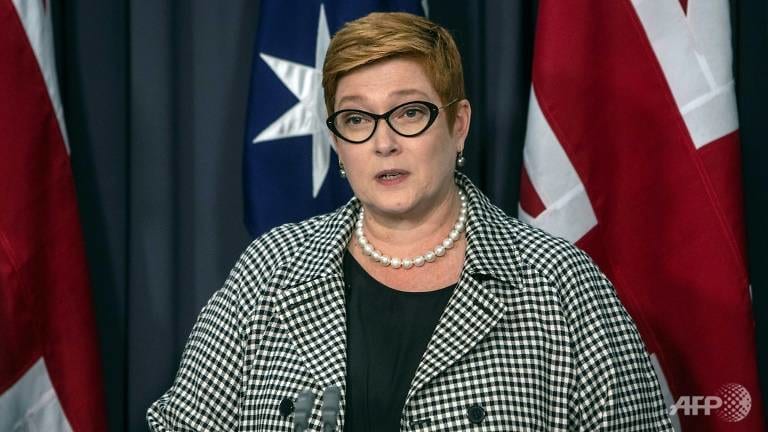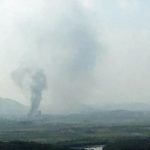
Australian Foreign Minister Marise Payne said China, Russia and Turkey were spreading misinformation about the coronavirus.
SYDNEY: Australia’s foreign minister accused China on Tuesday (Jun 16) of contributing to a climate of “fear and division” over the coronavirus in a speech also attacking Russia and Turkey for spreading disinformation about the disease.
Speaking at the Australian National University in Canberra, Marise Payne said COVID-19 had provided fertile ground for fake news, and highlighted Twitter’s action in uncovering the roles Russia, China and Turkey had allegedly played on the platform.
“Twitter disclosed over 32,000 accounts as state-linked information operations, which the company attributed to Russia, to China and to Turkey,” Payne said.
“For our part, it is troubling that some countries are using the pandemic to undermine liberal democracy to promote their own more authoritarian models.”
Payne also labelled Beijing’s warnings to citizens against travelling to Australia because of potential racist attacks as “disinformation”.
“At a time like this, what we need is cooperation and understanding,” she said.
She called for nations to bolster global bodies such as the World Health Organization to counter the “infodemic”.
“We will do so through facts and transparency, underpinned by liberal democratic values that we will continue to promote home and abroad,” said Payne.
Tensions between Beijing and Canberra have escalated steadily since Australia joined calls for an international probe into the origins of coronavirus and its handling by China.
Beijing has since taken retaliatory steps, including targeting trade with Australia and discouraging its citizens from visiting the country.
Chinese travellers represent the biggest group of tourists to Australia, as well as a significant and lucrative source of income from university students.
Payne acknowledged Australia may have made itself a target by speaking out for a review on the coronavirus, but said it had been in Australia’s best long-term interests.
“There are times to pursue quiet diplomacy behind the scenes, but there are also times to voice our concern and persuade others of the need for a course of action,” she said.



